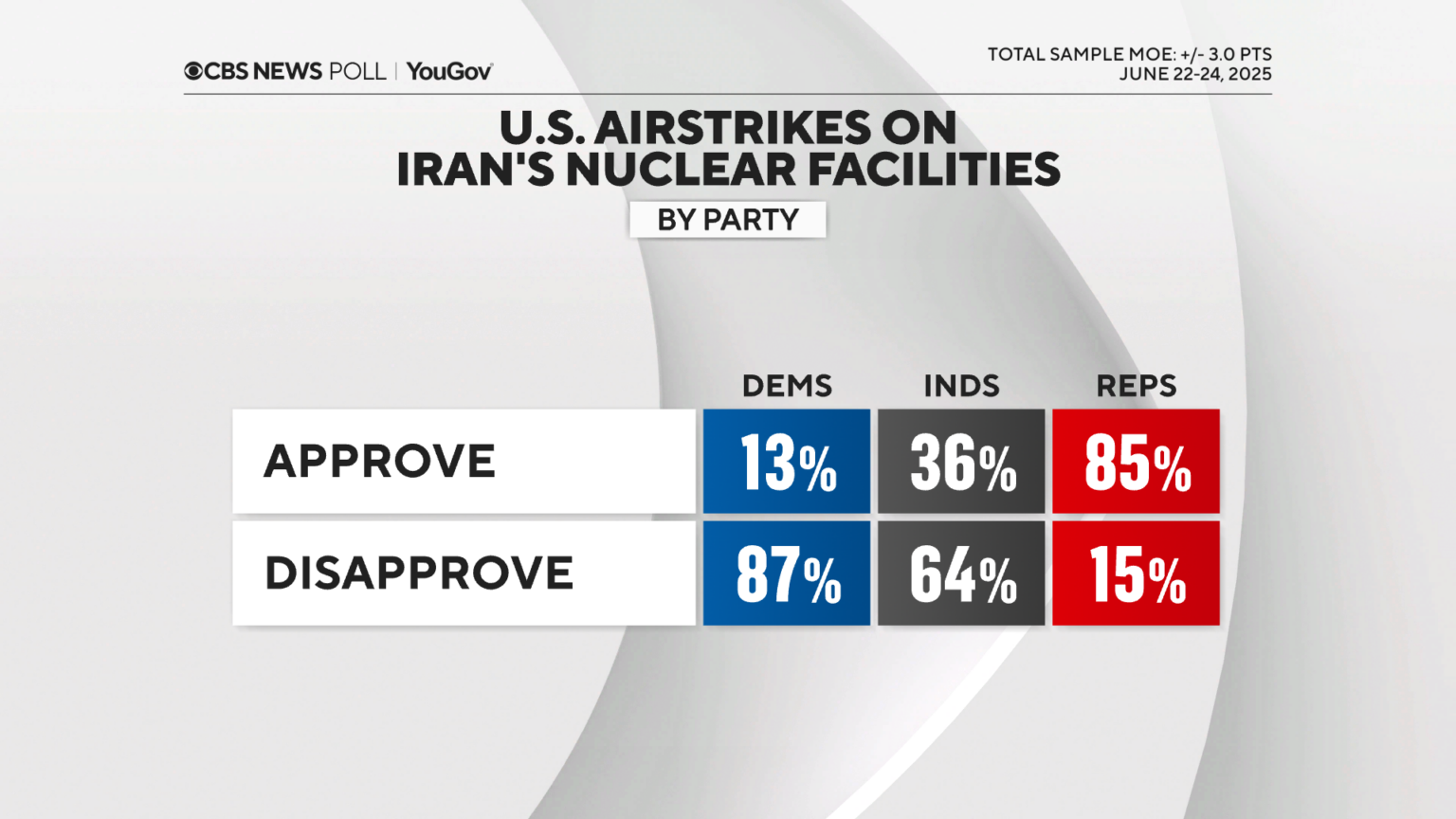In a recent assessment of the U.S. military’s airstrikes on Iran’s nuclear sites, public opinion and political reactions are providing a diverse and nuanced picture. While these actions have sparked a bipartisan acknowledgment of the potential threats posed by an Iranian nuclear arsenal, they have also revealed deep divides over the efficacy and geopolitical implications of the U.S.’s approach to curbing Iran’s nuclear ambitions.
To begin with, the threat of Iran developing a nuclear weapon is universally recognized across party lines in the U.S. as a serious security risk not only to the nation itself but also to global stability. This common view is undermined, however, by varying confidence in the Trump administration’s strategy concerning Iran. Supporters of the President, particularly Republicans and notably those identifying with the MAGA movement, largely support the administration’s decision to conduct airstrikes. They believe that such hardline tactics are necessary to deter Iran’s nuclear aspirations effectively.
On the other hand, a significant portion of the American public, including many Democrats and independents, express skepticism about the airstrikes’ effectiveness. They fear that rather than deterring Iran, these aggressive actions might exacerbate tensions and propel the United States into a broader conflict, potentially even war, with Iran.
This concern about escalating military entanglements crosses party lines to some extent, with even some Republicans uneasy about the possibility of a wider conflict, though generally to a lesser degree than their Democratic counterparts. This apprehensiveness has been somewhat mitigated by recent developments including a ceasefire between Iran and Israel, raising hopes for stabilization in the region.
Compounding the complexity of the situation is a significant consensus — approximately two-thirds of Americans surveyed — asserting that President Trump needs to obtain congressional approval for any further military action against Iran. This viewpoint spans the political spectrum, revealing a common desire among the American electorate for checks and balances in the use of military force, though MAGA-aligned Republicans are more likely to support unilateral presidential action.
This division is reflected, too, in the broader geopolitical and strategic calculations being weighed by the U.S. populace. Polling indicates a pervasive concern that Iran is likely to retaliate or seek other non-diplomatic avenues rather than engaging in negotiations. The cessation of hostilities between Iran and Israel, while viewed as a positive development, has not significantly alleviated these fears.
Moreover, debates concerning the effectiveness of the airstrikes sit atop another pressing national concern: the state of the U.S. economy. Despite relative stability in some economic metrics, public sentiment remains pessimistic. Prices continue to rise, and the specter of a recession looms large, with more than half of Americans forecasting an economic downturn in the near future. This economic anxiety colors perceptions of foreign policy and national security, with concerns over potential war expenditures exacerbating fears about economic stability.
All this occurs against a backdrop of complex international relations and domestic politics, with President Trump’s administration at the helm during these tumultuous times. Public opinion shows sharp divisions, not just about strategies concerning Iran but also about broader assessments of the administration’s competency and trustworthiness in handling such critical international issues. These divisions hint at the challenges the administration faces in not only managing international crises but also in maintaining domestic confidence in its policies and capabilities.
As Congress returns to session, the scrutiny over President Trump’s actions and the demand for legislative oversight underscore a pivotal moment for U.S. governance and foreign policy. With significant portions of the population calling for more measured and congressionally approved military actions, the political and public reaction to the airstrikes speaks volumes about the ongoing debate over America’s role on the global stage and the means by which it pursues its international objectives.
In sum, while there is bipartisan acknowledgment of the threats posed by Iran’s nuclear potential, the U.S. public is starkly divided on how best to address this challenge. The debate encapsulates broader concerns about war, executive power, and America’s international strategy, reflecting deep-seated anxieties about governance, military engagement, and national priorities in an increasingly complex global landscape.









